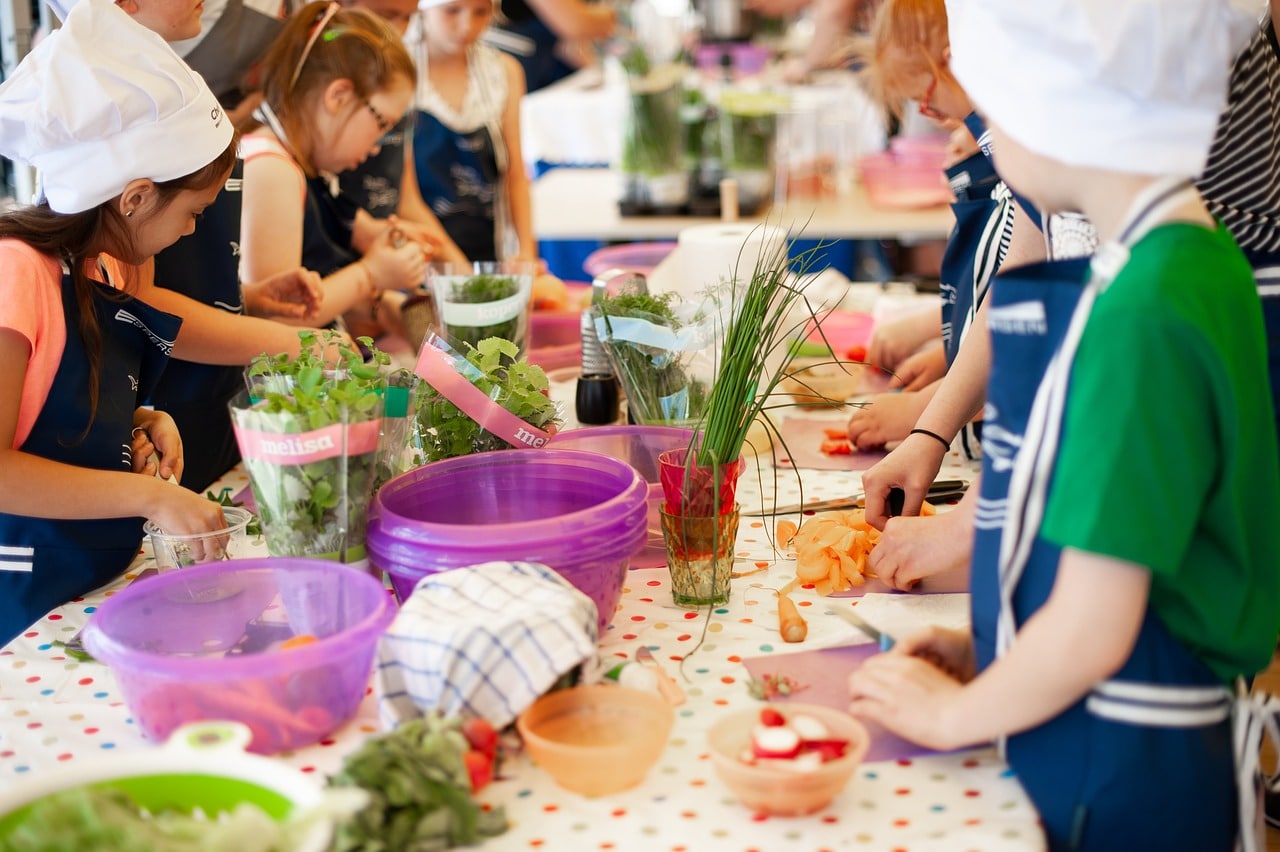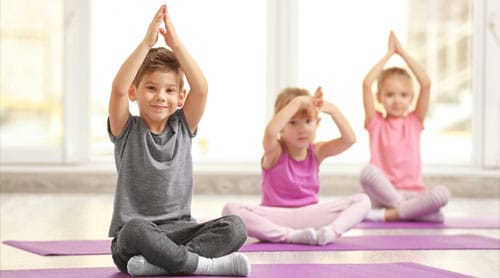
Childhood anxiety happens for a variety of reasons. Many of these anxious thoughts are quite normal. For example, between the ages of six months and three years old, children may experience separation anxiety. Separation anxiety can cause your child to cry and become insecure or feel unsafe when they are separated from his or her parents. Children may also develop phobias or fears. For example, a child may be afraid of the dark, storms, heights, water, and much more. These fears typically improve as the child grows older. Childhood anxiety can happen before taking a test, going to a new place, or meeting new people. Most of the time, these fears last a short time; however, if your child’s anxiety begins interfering with their everyday life or their anxiety continues for a long period of time, it can become a problem.
Recognizing the Symptoms
A young child may not be able to express how they are feeling; therefore, it is essential that you recognize childhood anxiety, which may include:
- Bedwetting and Bad Dreams
- Clinginess
- Irritability
- Sleep problems
- Tearfulness
- Waking up during the night
- Abdominal pain/nausea
- Headaches
Older children may experience:
- Lack of confidence
- Concentration difficulties
- Eating concerns
- Angry outbursts
- Abdominal pain/nausea
- Negative thought patterns or fear that bad things are going to happen
- Avoiding everyday activities, i.e. hanging out with friends, going to school, going out in public.

Starting on the Right Foot
Considering all the triggers that could impact children’s health, it makes sense to start with the building blocks of life. The food we eat is a fundamental part of our body’s development and has an impact on mental health and childhood anxiety. Some key aspects a diet can impact:
- Physical Growth & Development
- Brain development & Cognitive functions.
- Energy & Metabolism
- Immune system support.
- Emotional Well-Being
- Learning and academic performance.
It only makes sense that an unhealthy diet significantly impacts a healthy lifestyle. Studies prove that children lacking proper nutrition struggle at school and home. Life is as busy as a bee, and we often try to fit everything into the time available. Many now use meal subscription services for quicker, healthier meals. Unfortunately, there are better solutions for children’s health. Meal services are generally designed for the target market. Often meaning with an adult’s needs & pallet in mind, it’s a poor fit for your child’s dietary needs. Now may be the best time to cancel that meal subscription plan. While it’s easy to think of the time & money saved, we have approaches that may work for you. This will give you far more control over your little one’s nutrition.
Ways to Help Your Anxious Child
Promoting mental harmony in children connects closely with fostering creativity and mindfulness. By incorporating these techniques, we can nurture children’s mental well-being
Encourage Your Child – When your child is dealing with anxiety, he/she can feel alone and overwhelmed. Letting your child know you are there for them and it is okay to ask for help, can minimize their feelings of loneliness and shame.
Prepare Your Child – If there are upcoming changes that you know about, talk with your child ahead of time. Explain to them what is going to happen, why it is happening, and discuss how it will affect them.
Routines Can Help – Routines are reassuring and can help reduce the number of times your child feels anxious. Going to bed at the same time each night, getting up at the same time each day, eating dinner at the same time, etc. are easy ways to help reduce anxiety.
Teach Relaxation Techniques – Relaxation techniques like deep breathing exercises, yoga, guided imagery, prayer, and meditation can help reduce or prevent anxiety. Teach your child how to practice one or more of these relaxation techniques to help counteract their anxiety.

A Mindful Way to Understand
Building mental resilience in little ones who have childhood anxiety requires fostering a growth mindset. Encourage your children to view challenges as opportunities for growth rather than obstacles to be feared. When they encounter difficulties, guide them in reframing their perspective and focusing on the lessons learned.
Create a serene corner at home where your children can retreat for moments of calm. Decorate it with soothing colors, comfortable cushions, and perhaps a few inspiring quotes. This becomes their safe haven for reflection, meditation, or simply unwinding with a good book.
As a family, embark on a “gratitude journey.” Each day, take a few moments to share something you’re thankful for. This practice cultivates positivity and helps everyone focus on the good aspects of life, promoting emotional well-being.
The Benefits of Green and Blue

Nature offers a few of the best ways to clear the mind, de-clutter our thoughts, and focus on something more fundamental. In fact, according to the British Heart Foundation, even just a view of a forest helps reduce cortisol (the stress hormone). Moreover, nature improves your mood, reduces feelings of anger, improves self-esteem and optimism.
As an exercise of mindfulness, spending time in nature to ‘walk amid the flowers’ yields many positive benefits. Simply pick some flowers, stop to feel the sun on your face, or listen to the wind in the trees or waves on the sand. When you do, take a moment to feel the warmth of the sun spread through your body. Feel your tension decrease as the sound of the breeze or the rhythmic cadence of waves transports you away from the stresses of the moment. In the same way, you can reduce anxiety and support a positive mindset by gardening or tending a potted plant at your desk, listening to or watching birds, or taking an unhurried walk. Nature heals us in a variety of ways.
How Can We Help?
Anxiety in children is not uncommon. It affects millions of children each year. Understanding what your child is going through and showing compassion can help your child overcome anxiety. Include the aforementioned techniques to help teach your child how to learn to effectively handle their anxiety. Overcoming anxiety is not always about eliminating everything that is causing anxiety; rather, it is not allowing anxiety to rule their life.
If anxiety persists, seek out professional help. Our practitioners use a holistic approach to integrative pediatric medicine. We understand that nutritional deficiencies and undiagnosed health conditions can impact your child’s thought processes and lead to anxiety issues.























